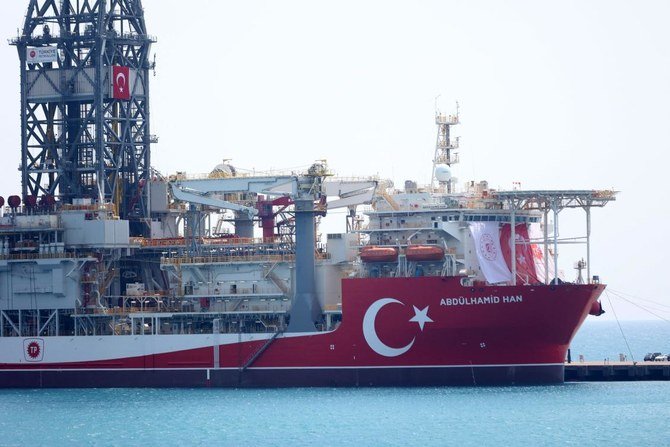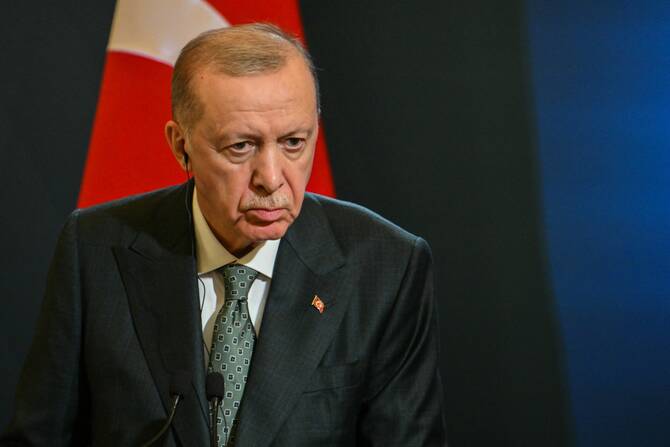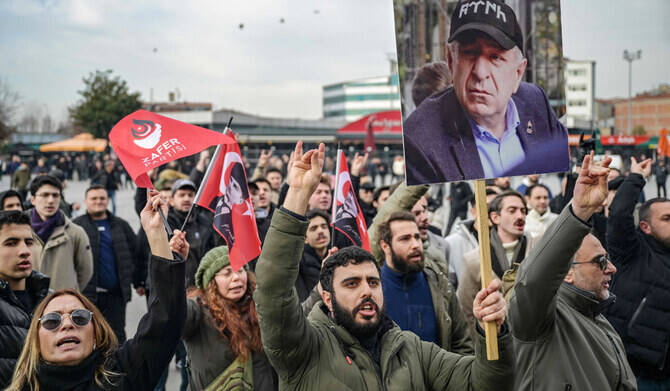ISTANBUL: Turkey’s president inaugurated the country’s newest and largest undersea hydrocarbon drill ship Tuesday that he said would head for a spot northwest of Cyprus in the eastern Mediterranean, which is not claimed by any other country.
“Our exploration and drilling in the Mediterranean is within our own sovereign dominion,” President Recep Tayyip Erdogan said at the ceremony in southern Mersin province, only to add: “We don’t need to seek permission or ratification from anyone.”
Turkey is embroiled in acrimonious disputes with Greece and Cyprus over maritime boundaries and offshore energy rights, which triggered high tensions in the eastern Mediterranean two years ago.
Erdogan said Tuesday the new Abdulhamid Han ship would begin drilling at the Yorukler-1 well about 55 kilometers (34 miles) off the coast of Gazipasa, in Antalya province.
“Neither the puppets nor the ones who hold their strings will be able to prevent us from getting our rights in the Mediterranean,” he said, in an apparent reference to Greece and Cyprus on the one hand, and their Western allies on the other.
In the summer of 2020, tensions escalated after Turkey sent a seismic survey ship escorted by warships to an area in the eastern Mediterranean where Greece claims exclusive rights to potential undersea oil and gas deposits. Greece sent its own warships to shadow the Turkish flotilla. Both countries later conducted military exercises as a show of force.
Turkey insists that small Greek islands near the Turkish coast should not be taken into account when delineating maritime boundaries, and accuses Athens of trying to grab an unfair share of the eastern Mediterranean’s resources.
The NATO allies routinely accuse each other of airspace violations. Turkey also claims that Greece has violated international treaties by militarizing eastern Aegean islands close to Turkey.
Turkey’s other drill ships — Fatih, Kanuni and Yavuz — are operating in the Black Sea where Turkey discovered natural gas reserves. All four ships are named after Ottoman sultans.
AP






















